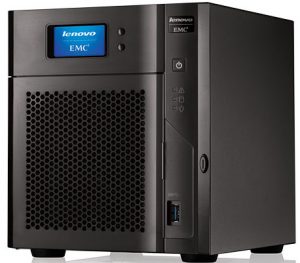 Network Attached Storage (NAS) devices are centralized data hubs that offer convenient access and sharing capabilities. While they’re often redundant, redundancy is not backup — and no storage device is immune to failure.
Network Attached Storage (NAS) devices are centralized data hubs that offer convenient access and sharing capabilities. While they’re often redundant, redundancy is not backup — and no storage device is immune to failure.
According to a 2022 report by Uptime Institute (PDF), 60% of organizations experienced some form of data loss in the past three years. Often, the most expensive data loss scenarios involve mass storage devices; organizations may mistakenly believe that NAS systems are naturally more robust, which can lead to disaster.
Below, we’ll discuss some of the most common NAS failure scenarios and provide some general tips for optimizing the chances of successful NAS data recovery. To speak with a NAS data recovery expert, call 1-800-237-4200 or submit a case online to schedule a risk-free evaluation.
Understanding NAS Failure Scenarios
Most NAS devices utilize RAID (Redundant Array of Inexpensive/Independent Disks) for some degree of redundancy: If a single hard drive or solid-state drive fails, the system does not lose data. In some cases, an enterprise NAS device might be able to withstand several drive failures without data loss.
Most NAS systems utilize RAID 5 (home NAS appliances might use RAID 1, 0, or even RAID 10). While redundancy can keep a NAS operating, failures can still occur for a variety of reasons:
- Multiple drive failures exceeding RAID redundancy levels, such as two drives failing simultaneously in a RAID 5 array.
- RAID controller malfunctions due to events like a power surge, leading to array inaccessibility.
- Potential for data overwriting during improper RAID rebuild attempts, especially when using incompatible drives.
- File system corruption due to power failures, abrupt shutdowns, or software bugs.
- Accidental deletion of files or folders.
- Firmware issues causing NAS malfunctions.
- Ransomware attacks leading to data encryption or corruption.
- Fires, floods, and other natural disasters.
- Human error in RAID configuration, formatting, or drive replacement.
A single drive failure in a RAID 5 array might be resolved by replacing the faulty drive and rebuilding the array. However, in the case of multiple drive failures or RAID controller malfunctions, data recovery engineers must use specialized tools and techniques to repair the damaged media, reconstruct the array, and retrieve the data.
Logical issues, such as file system corruption or accidental deletion, necessitate different strategies, often involving file carving, data analysis, and specialized software to recover the lost information.
Learn more: NAS Data Recovery Services.
The Challenges of NAS Data Recovery
Recovering data from a failed NAS device presents unique challenges that differentiate it from traditional hard drive recovery.
- RAID Complexity: Successfully retrieving data from a failed RAID array requires specialized knowledge of different RAID levels (RAID 0, RAID 1, RAID 5, RAID 6, RAID 10, etc.) and their configurations. The complexity increases with the number of drives and the specific RAID level implemented.
- Proprietary Systems: Many NAS manufacturers, such as Synology and QNAP, utilize proprietary file systems like ZFS and Btrfs. These file systems often pose unique challenges due to their specific metadata structures, compression algorithms, and data organization schemes, necessitating specialized tools and expertise for successful data recovery.
- Embedded Architecture: NAS devices are often embedded systems with unique operating systems and file structures. This can make data recovery more complex because the data is not easily accessible with standard hard drive recovery tools and techniques. Specialized knowledge of the NAS device’s architecture and operating system is often required.
- Data Encryption: Encryption can complicate the recovery process if the encryption key is lost or corrupted, or if the encryption metadata itself is damaged. Furthermore, the complexity of encryption algorithms used in NAS devices can pose significant challenges to data recovery efforts.
- Logical Damage: Addressing logical damage like file system corruption or accidental deletion requires specialized software and in-depth knowledge of file system structures.
Preventing NAS Data Loss
Taking proactive measures to prevent data loss is crucial for any business or individual relying on NAS devices. Here are some essential tips:
- Regular Backups: Implement a robust backup strategy, including both on-site and off-site backups. Remember, redundancy is not backup. If data exists on a single device, it’s at risk.
- Drive Health Monitoring: Regularly monitor the health of your NAS drives using SMART (Self-Monitoring, Analysis and Reporting Technology) tools to identify potential issues before they escalate. This is especially important when rebuilding a NAS with a failed drive; the rebuild process can be intensive and can prompt a secondary drive failure.
- Firmware Updates: Keep your NAS firmware up to date to benefit from bug fixes, performance improvements, and security patches.
- Strong Security: Implement strong passwords, access controls, and firewalls to protect your NAS from unauthorized access and malware attacks.
Professional NAS Data Recovery with Datarecovery.com
Datarecovery.com specializes in RAID and NAS recovery. For decades, we’ve invested in research and development, maintaining an extensive parts library with tens of thousands of hard drives, solid-state drives, and RAID controller cards.
Whether you’ve lost data due to a software error, a ransomware attack, or a natural disaster, we’re ready to help. All of our locations are equipped with full-service laboratories capable of handling NAS devices.
Why choose Datarecovery.com?
- Fast turnaround time: We understand the urgency of data recovery and strive to minimize downtime.
- No data, no fee guarantee: You only pay if we successfully recover your data.
- 24/7 emergency service: We are available around the clock to handle critical data loss situations.
Restore data from any NAS device. Datarecovery.com provides three service options for NAS cases, including 24/7 emergency service to deliver the fastest possible results (often in under 24 hours). Call us now at 1.800.237.4200 to speak with a recovery specialist or submit a case online.




